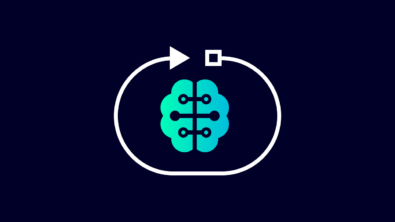AI: A complement to human intelligence, not a replacement

The idea of intelligent, self-aware, machines has existed in popular culture and media for decades in everything books to video games to movies with artificial intelligence taking on roles from newly birthed consciousness to evil overlord. While this has long remained the realm of science fiction, with the recent advances in AI and the growing popularity of services such as ChatGPT with its ability offer very human-like responses, it’s easy to imagine that the AI revolution could begin at any moment. In truth, though, how close are the AI-enabled tools of today to the thinking, learning, self-aware machines depicted in science fiction?
The short answer is, not very. While a generative AI chatbot might seem to hold a conversation, or a digital advisor might offer insights on how to use a program in a very human-like way, neither one is “thinking” in the same way a human would. While the results are certainly impressive, currently AI can do nothing it is not trained, by humans, to do, learn any information it is not given, or perform any task not explicitly asked of it. Without the ability to learn, evolve and develop purely for the sake of personal growth, it’s hard to consider AI as truly conscious in the way a human is, no matter how it might appear from the outside.
The debate of what makes a human, human has raged for centuries as philosophers and neuroscientists struggle to understand where the spark of consciousness lies. In many ways AI owes its existence to these efforts to understand ourselves as we attempt to recreate with machines what already exists within our own bodies. The term “AI” gets thrown around a lot now but it’s important to stop and remember where the term comes from: artificial intelligence often meant to mimic the way the human brain thinks and works. If creating consciousness was so simple, then surely humans would not be the only example of it on Earth.
AI today: a trusted advisor
So, at least for the foreseeable future, AI remains a collection of algorithms which, without rigorous training, struggle to perform certain tasks even babies can manage. However, despite the shortcomings of AI as a digital form of human intelligence, there are areas where it excels in a way simply impossible for its creators. What AI lacks in self-awareness and critical thinking abilities, it makes up for with its ability to scale and process vast quantities of data, generating insights and analytics faster than a human ever could.
While the sentient AI of science fiction is a step beyond the complex mathematics and algorithms that make up the artificial intelligences of today, the result is still a unique form of intelligence. Rather than a mirror of the human mind, AI better serves as a complement to it, excelling in areas we do not and building a bridge between the physical and digital worlds.
To create a truly self-aware AI, it would likely require a radical shift in training methodology and algorithm design. Currently, AI is trained using a goal-oriented top-down approach where data is selected and the models are created and trained to fulfill a specific task. This method, while effective at creating AI that can do a job, bares little resemblance to the way human minds develop which is more analogous to the bottom-up method of AI training.
The sky is the limit for the future of AI
Bottom-up AI, which allows the model to explore and receive feedback in much the way a child would from a parent, offers the potential to give rise to an artificial intelligence much closer to a human mind that what is currently possible. Of course, just as with raising children, the process for training a bottom-up AI is a slow and costly one – especially given the prodigious cost in both energy and hardware required to operate these systems. While training an AI in this way may offer some insight into how our own minds develop, it remains largely impractical for any of the uses AI currently serves in our society.
The idea of a truly self-aware living artificial intelligence is a fascinating one but, at least for the near term, one that remains tantalizingly out of reach. Even if that dream one day becomes reality, it’s highly unlikely the AI present in current software could ever attain any level of sentience, no matter how advanced it may seem, simply because it was never designed that way. No one can predict what the future might hold, especially in the fast-paced world of AI, but at least for now the AI apocalypse seems unlikely as artificial intelligence fills the role of assistant rather competitor to humanity.
Siemens Digital Industries Software helps organizations of all sizes digitally transform using software, hardware and services from the Siemens Xcelerator business platform. Siemens’ software and the comprehensive digital twin enable companies to optimize their design, engineering and manufacturing processes to turn today’s ideas into the sustainable products of the future. From chips to entire systems, from product to process, across all industries. Siemens Digital Industries Software – Accelerating transformation.


